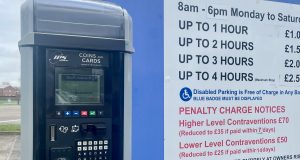New ambulances and staff have seen improvements to the East Midlands Ambulance Service (EMAS).
A report to the county council’s health scrutiny committee says there have been 39 new vehicles added to the fleet. Of those, 28 are direct replacements while 11 are additions.
“While the performance of the division has improved considerably between March 2018 and March 2019, it remains a considerable challenge to meet the targets given the rurality of the county,” members were told on Tuesday.
“Hospital turnaround continues to be a challenging aspect of emergency ambulance delivery locally, regionally and nationally,” it added.
There is to be a national requirement for acute trusts to take responsibility for patients conveyed to their sites within a maximum of 30 minutes to release crews.
According to statistics presented to the committee, more than 7,000 crew hours were lost in the last quarter of last year due to delayed handovers.
Over the last year EMAS has recruited around 484 new staff including 331 trainee technicians.
For Lincolnshire, the figures equate to 91 new ambulance technicians, eight paramedics and a further 14 urgent care assistants.
“The large scale recruitment process continues into 2019/20, there is a plan to recruit a further 484 staff with 114 earmarked for Lincolnshire,” the report says.
“We are happy to be working in partnership with the University of Lincoln and our first cohort of 20 paramedics commenced training in September 2018.
There was also an unannounced Care Quality Commission (CQC) visit earlier this month and among findings were much imported morale and a positive change of culture, members of the committee were told.
The last CQC report in 2017 found that the service required improvement. It had been served with a warning notice by the commission in the summer of 2016.
Inspectors made visits to the stations, took journeys with the staff and conducted interviews.
The latest full CQC report is due to be published later this year.
The service covers six counties, Lincolnshire, Derbyshire, Nottinghamshire, Leicestershire, Rutland and Northamptonshire.
 The Voice of Spalding and South Holland
The Voice of Spalding and South Holland



